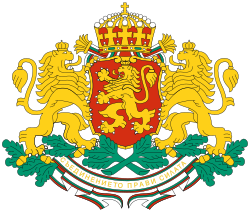Aftermath
Bogdan Filov was appointed as Prime Minister after the election. The government signed the anti-Jewish Law for Protection of the Nation, the Mobilization Directorate [ bg ] and the pro-fascist Brannik youth organization were formed. In 1940 the Treaty of Craiova was signed, returning control of Southern Dobruja to Bulgaria. The country joined the Tripartite Pact and World War II on 1 March 1941, with a 140 to 20 vote in the Assembly. Boris III died on 28 August 1943 and a regency for his son Simeon II was established. Filov became a regent and was succeeded as PM by Dobri Bozhilov and later by Ivan Bagryanov. As soviet troops were about to enter the country, the regency allowed the formation of a government of the pro-Allied democratic opposition under Konstantin Muraviev, however it was overthrown by the Fatherland Front seven days later in the 9 September coup. [10]
127 of the 160 MPs in the XXV National Assembly were tried in the People's Court, (111 were present, 7 tried in absentia and 9 had died), with 67 sentenced to death, in addition to the three regents (Filov, Prince Kiril and Nikola Mihov) and the Prime Ministers Bozhilov and Bagryanov, amongst others. [11]
This page is based on this
Wikipedia article Text is available under the
CC BY-SA 4.0 license; additional terms may apply.
Images, videos and audio are available under their respective licenses.

